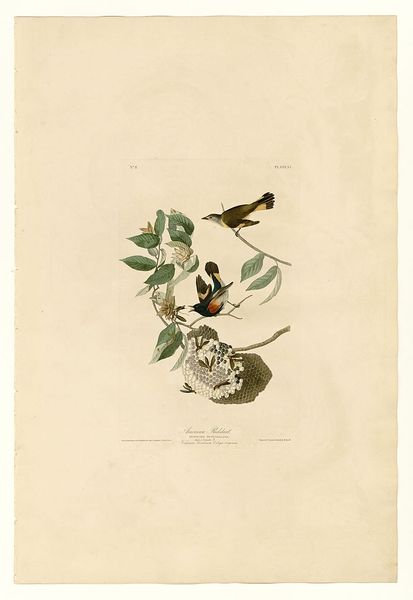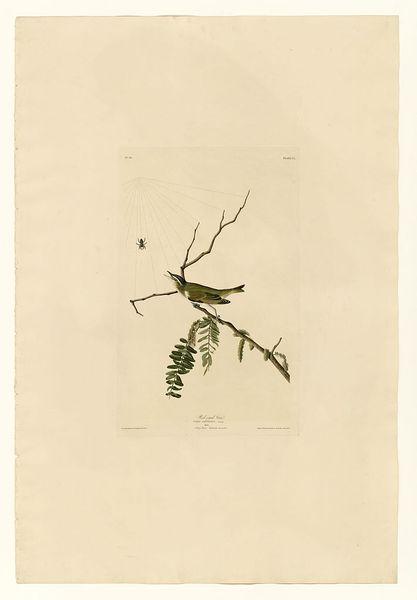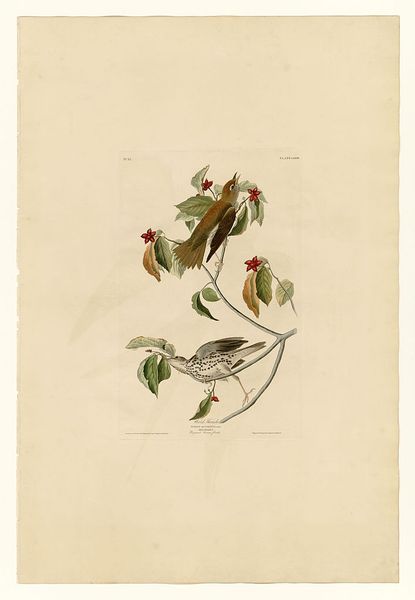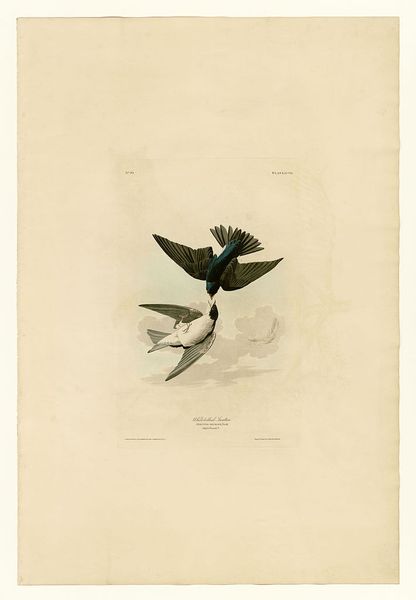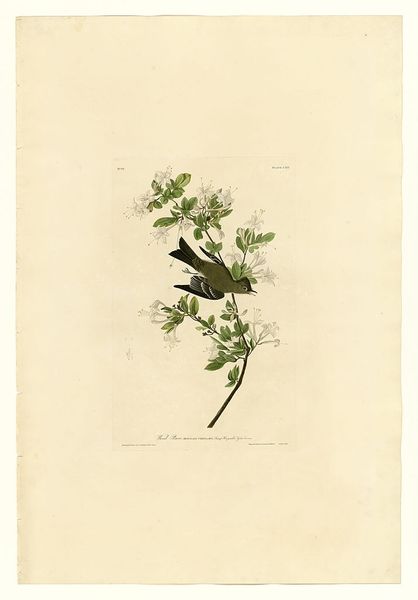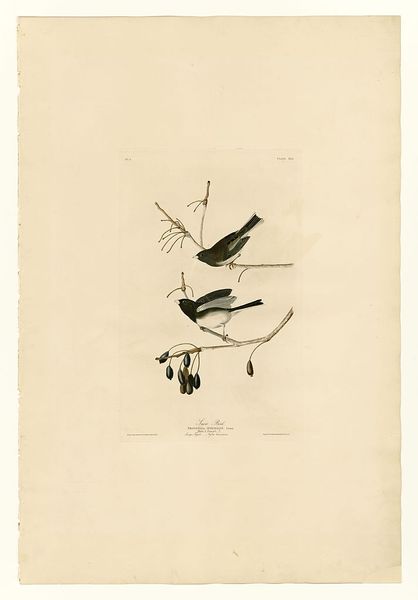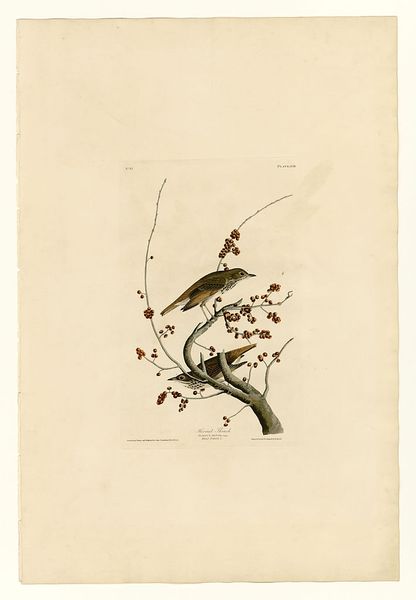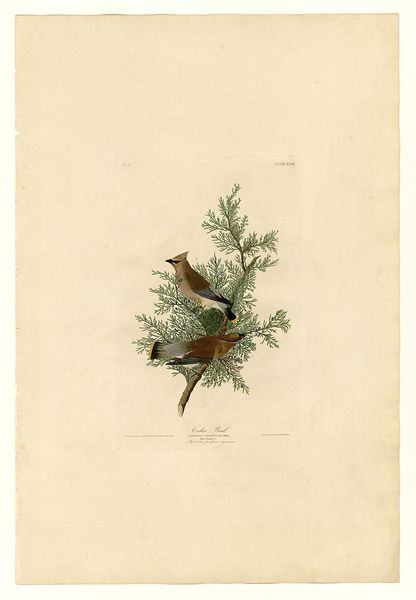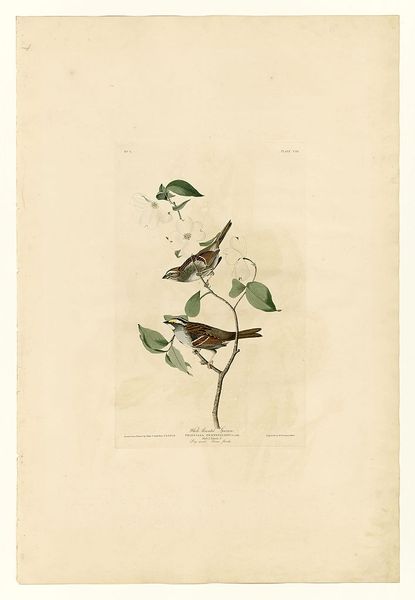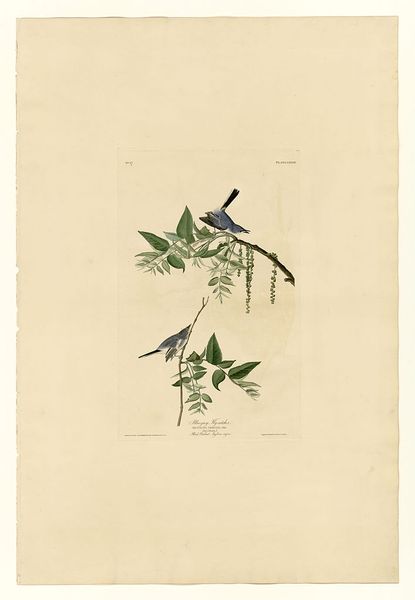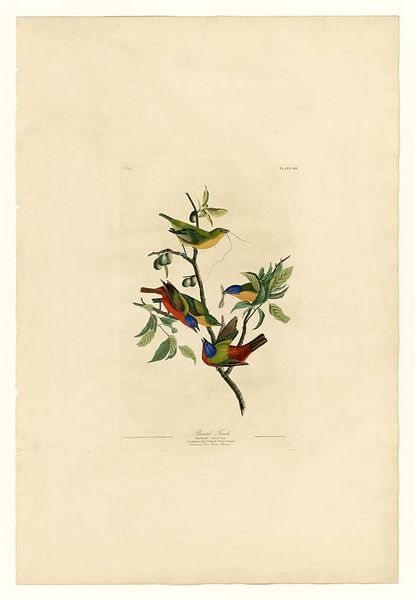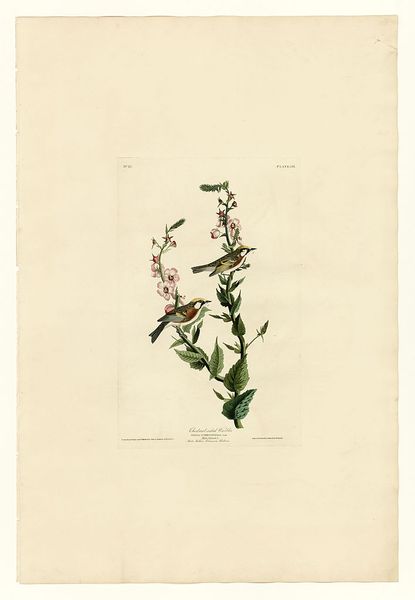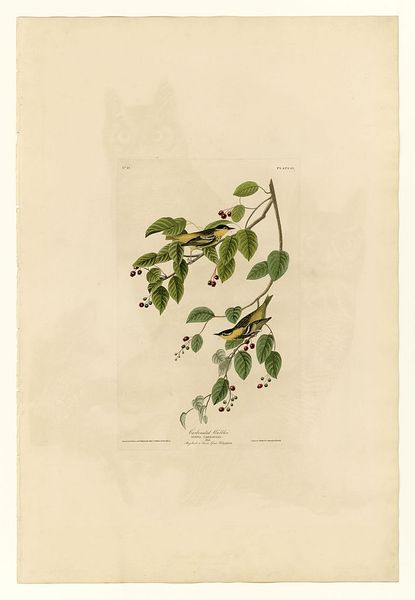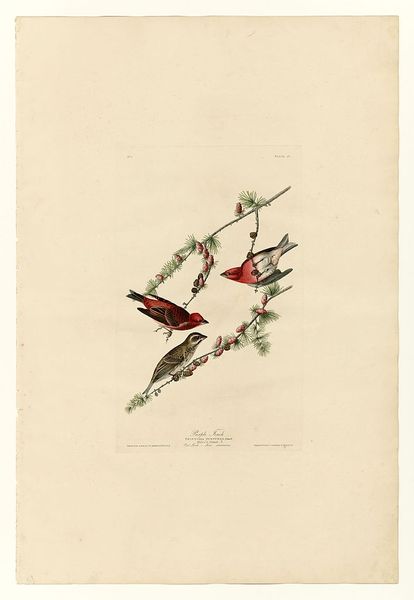
drawing, lithograph, print, paper, ink
#
portrait
#
drawing
#
lithograph
# print
#
landscape
#
figuration
#
paper
#
ink
#
romanticism
#
naturalism
Copyright: Public domain
Curator: Welcome! We're standing before "Plate 25. Song Sparrow," a lithograph and ink drawing on paper, believed to be by John James Audubon. Editor: The birds look like they are posing, frozen. Maybe the moment just before taking flight... like they're captured and pinned down to the page, forever about to burst forth. There is an unnatural calm for being stuck on that paper... Curator: Audubon's approach to capturing nature, especially birds, was deeply connected to Romanticism. There's this palpable sense of the sublime wilderness tamed, reduced, displayed— almost like trophies? I see that feeling particularly strong when they are grouped. It creates an unsettling composition. Editor: Indeed, you're right—there is such unease in Romantic renderings of the natural world. Focusing on the making, I’m particularly drawn to how Audubon and his team utilized printmaking to make this accessible, an artistic rendering democratized in some ways. It moved nature study beyond wealthy patron collections of original drawings. He, too, wanted a buck, like any business. Curator: The distribution aspect is fascinating—especially how it clashes with this idea of the solitary, untouched wilderness so celebrated in the Romantic period. It highlights this tension between the artistic interpretation of nature and its practical exploitation. A fine rendering can never fully show reality, too. He likely had taxidermied models sitting next to him as he put pen to paper! Editor: The very materiality of this print speaks volumes about Audubon’s world—from the rag paper that served as his canvas, made from discarded clothes and linens by countless laborers, to the ink derived from minerals. These processes of art production depended on industrial processes. The whole creation of the piece brings attention to what it conceals. The labor that made this moment, this sparrow, linger! Curator: Absolutely. And thinking about that, and how this seemingly innocent image involved resource extraction and exploitation, certainly alters my perception. Thank you, I never saw it in this manner. Editor: Thanks for letting me share. Seeing the whole picture of art and the world makes everything that more rich.
Comments
No comments
Be the first to comment and join the conversation on the ultimate creative platform.
